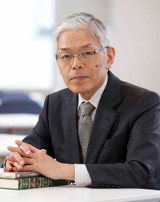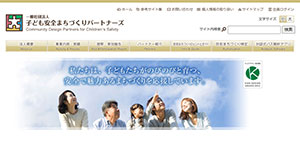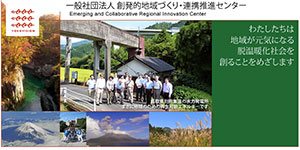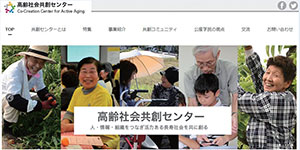This Program was established in 2013 with the aim of consolidating and updating ("packaging") the outputs of RISTEX’s R&D Focus Areas / Programs, and implementing these packages to comprehensively address the needs of sites where social issues were prominent. In accordance with this aim, 4 integrated-type projects were funded.
(Completed in March 2019)
Program Supervisor

ARIMOTO Tateo
Visiting Professor, The National Graduate Institute for Policy Studies (GRIPS)(as of the completion of the Program)
Message from the Program Supervisor
RISTEX developed its own operational methodology based on integration of knowledge from the humanities and social sciences and natural science and on collaboration with stakeholders. This methodology covered the whole process from the design stage of R&D focus areas to the solicitation and adoption of projects and the promotion of R&D. The first two R&D focus areas established based on this new methodology finished in fiscal year 2012. High praise has been received for the fact that, rather than limiting itself to only analytical and theoretical research, it produced outcomes relevant to actual local circumstances and society by prioritizing practical research conducted through collaboration with stakeholders, creating scientific knowledge and methods that contribute to the resolution of societal issues.
However, these outcomes are little more than the first budding results, demonstrated in society in a limited area and in a limited period of time. A new framework is required in which the outcomes that have been produced and the networks that have been developed will continue to be built upon, implementation activities will continue and extend without program assistance, and deployment in society will be assured. It is still the case that in general, researchers' implementation activities are not highly rated by academia. We believe that by actively supporting consistent social implementation activities from R&D, the evaluation of implementation activities will change, fostering this capability in the next generation of researchers.
This is a new challenge. We aim to put into practice "science for society" with the aim of resolving social issues by using a 'bridge' that spans science, technology, and society--beyond the boundaries of focus areas to R&D and implementation.
Program Outline and Summary Outputs
The Research Institute of Science and Technology for Society (RISTEX) conducts and promotes R&D with the aim of creating outcomes that contribute to solving grave problems that humanity and society in the 21st century face (environment and energy, green innovation, the falling birthrate and aging of the population, safety and security, life innovation, etc.). In R&D Focus Areas and Programs, RISTEX has been strategically calling for proposals and selecting projects with the prospect of social implementation, and with the Focus Area / Program management which promotes collaboration among projects from the R&D phase, it has been accumulating R&D outputs which are to be used in solving social issues as well as producing comprehensive outputs of the Focus Areas / Programs as a whole. By integrating (packaging) R&D outputs of individual projects as well as the theories, concepts and networks that have been developed in the Focus Areas and Programs, instead of letting these to disperse, it becomes possible to further increase the effectiveness of solutions, and to improve the quality and the speed of diffusion / adoption in society. While the Implementation-Support Program (Call for proposal type) promoted implementation of individual solutions like “points” in geometrical terms, the Implementation- Support Program (R&D results integrated type) aimed to implement solutions like “planes,” and pursued activities for 6 years from FY2013 till FY2018.
Over these 6 years, 4 projects had been selected, and implementation activities were enthusiastically carried out in 3 of these projects for approximately 3 years (1 project was discontinued after a 1-year initial implementation period). Before the R&D outputs become available to the public and the market, a series of R&D stages, namely research, development, demonstration and diffusion, needs to take place. The knowledge and technologies are applied to the actual sites of social problems and their effects are verified, and if there are issues that need to be addressed, these outputs undergo further R&D. Such is the activity of social implementation which refines the outputs by repeating this cycle. To create outputs that help solve the issues society faces, and for those outputs to be continuously utilized in society, it is essential that a diversity of people, institutions and systems interact, and that dialogues are held and collaborations realized between government, industry, academia, and citizens. All of the 3 completed projects achieved to build networks of diverse stakeholders, and pursued enthusiastic implementation activities based on their collaboration. Furthermore, even after the end of the implementation support period, autonomous activities for social implementation, in the form of the cycle of research, development, demonstration, and diffusion, are continued by institutions such as general incorporated associations.

Community Design Partners for
Children's Safety
Emerging and Collaborative Regional
Innovation Center (ECORIC)
Co-Creation Center for Active Aging
(current Co-Creation Center for Future Initiatives)

Project
FY2016
|
Co-creating Communities for Aged Society |
2016.7-2019.3 |
|---|
FY2014
|
Local Co-Innovation approach for against Climate Change |
2014.5-2017.3 |
|---|
FY2013
|
Collaborative Activity Support for Safe School and Community Based on International Standards |
2013.5-2016.3 |
|---|---|
|
Investigation into an alternative process for agenda building in science & technology issues |
2013.5-2014.3 |